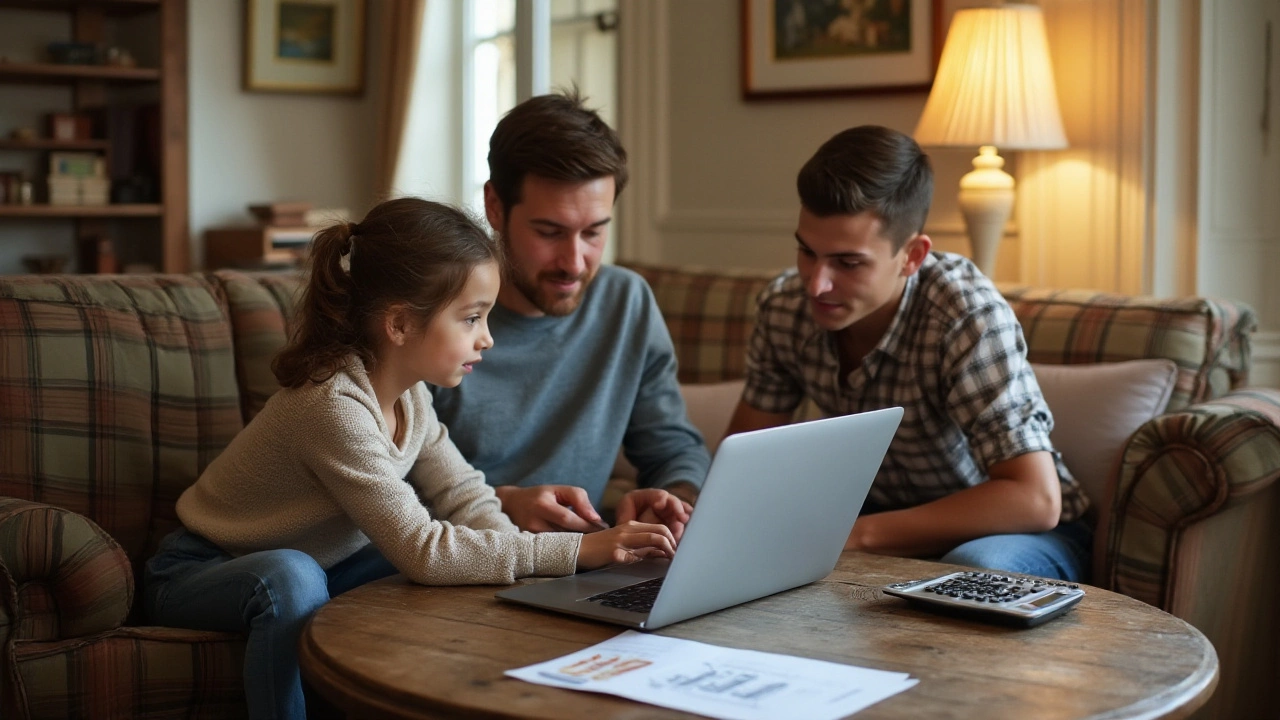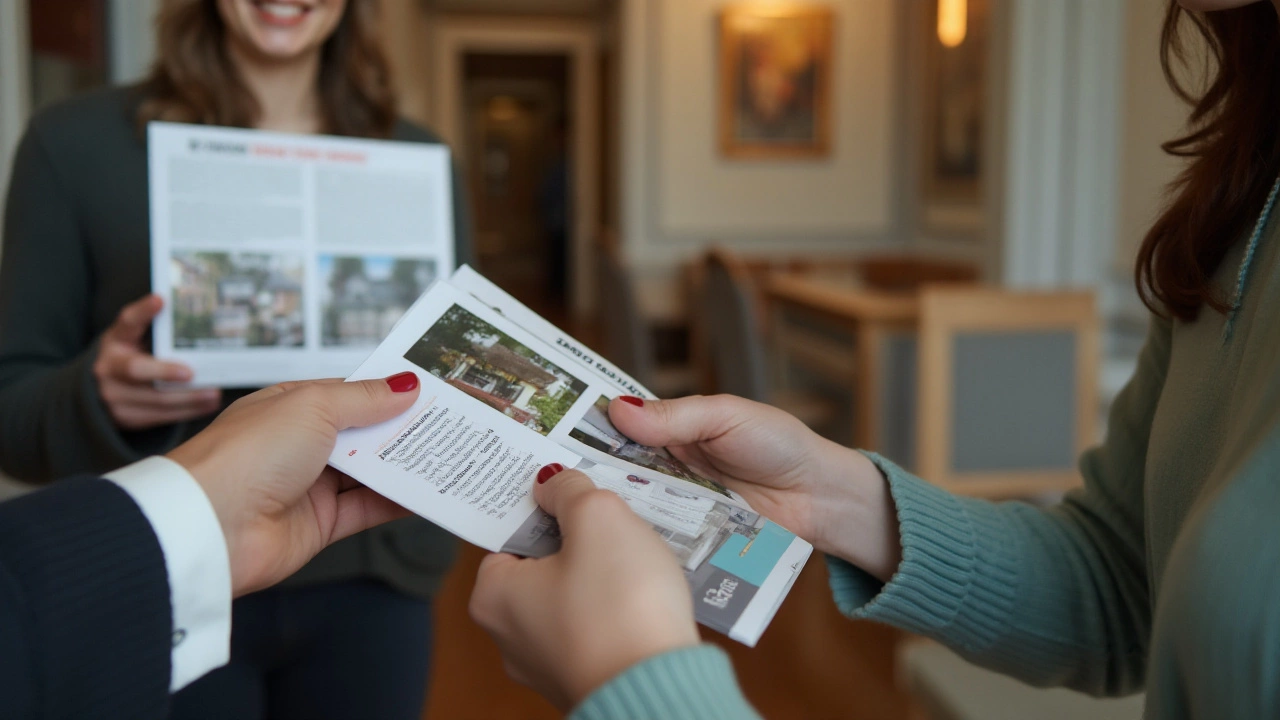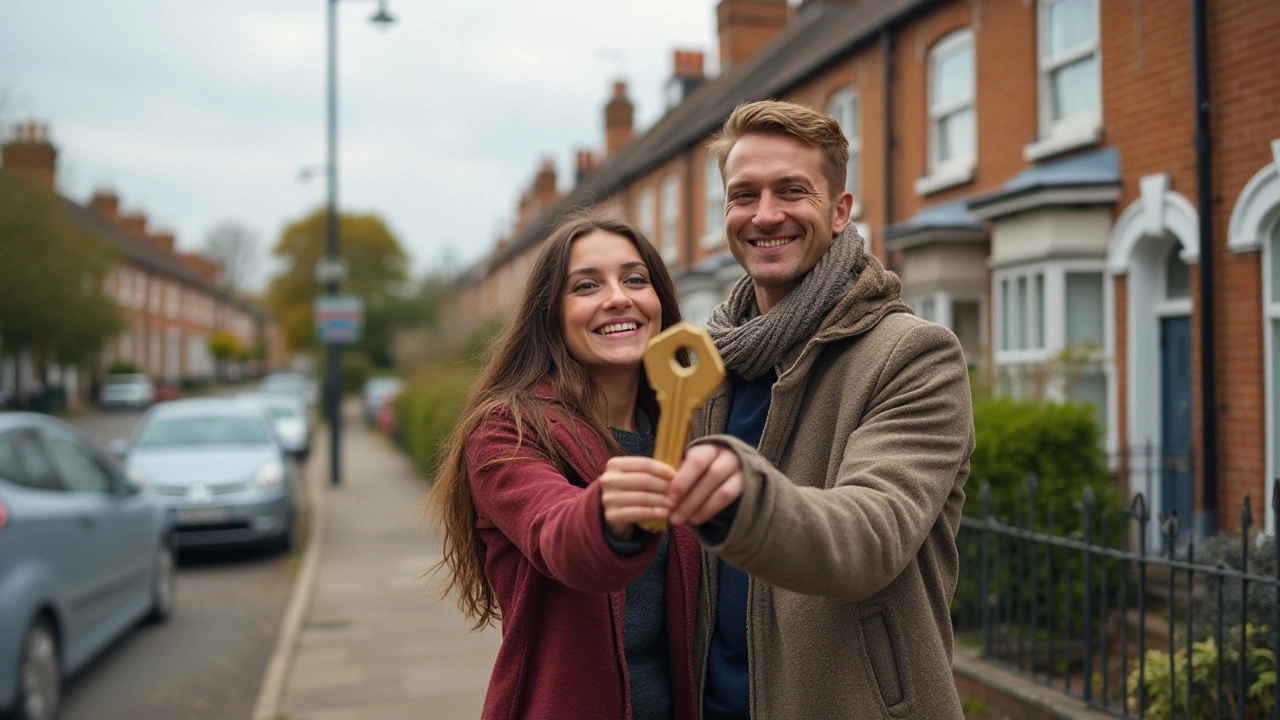For many first-time home buyers, the dream of owning a house often feels just out of reach, especially when the hurdle of a down payment looms large. The idea of buying a home with no money down can feel like a light at the end of a long, winding tunnel.
But is it truly the smart choice? This article delves deep into the world of zero down payment mortgages, uncovering both the sweet spots and the pitfalls. We’ll journey through the alluring benefits and inevitable risks, providing insight into how these choices can impact a buyer's future.
With diverse loan options available today, it's more crucial than ever to evaluate your personal situation before making a leap into homeownership. Laying out the benefits, possible setbacks, and the variety of loan programs, this guide aims to arm you with the information needed to make a savvy decision.
- Understanding Zero Down Payment
- Pros of Buying with No Money Down
- Potential Drawbacks
- Exploring Loan Programs
- Making the Right Choice
Understanding Zero Down Payment
Diving into the world of real estate, the concept of a zero down payment might seem like an alluring ticket for many aspiring homeowners, especially those just stepping onto the property ladder. But what does this really entail? At its core, a zero down payment means that a buyer can finance an entire house without having to front any initial cash. Considering that traditional homebuyers often face the daunting task of amassing a 20% down payment, the no-money-down approach might appear as a real estate genie, but it comes with its own set of complexities and requirements. While government-backed loans like those from the USDA and VA offer such opportunities, eligibility criteria can be stringent, making it essential to understand one's own financial landscape before pursuing this avenue.
The origins of the zero down payment concept can be traced back to post-war America, where veterans had a chance to own homes through VA loans with little initial cash investment. In the present day, the USDA Rural Development Loan has broadened its horizon to include eligible rural and suburban areas, though often surprisingly close to more developed cities. This program's goal has been twofold: opening the door to homeownership for individuals with modest incomes and rejuvenating rural economies. "Owning a home remains a lynchpin of the American Dream," said Mark Fleming, Chief Economist at First American Financial Corporation in a
recent interview with CNBC.This sentiment underscores the societal importance placed on homeownership and the financial strategies developed to make it attainable.
However, entering the commitment of a no-money-down home purchase requires a clear understanding of the potential trade-offs. Without a down payment to act as a financial buffer, buyers can find themselves facing higher monthly mortgage payments, larger interest costs over time, and even private mortgage insurance (PMI) fees. Thus, the perceived benefit of bypassing a down payment could be offset by increased costs in the long haul. Additionally, without significant upfront equity, homeowners can also find themselves precariously positioned should property values decline, facing the risk of owing more than the market value of their home, a situation known as being 'underwater' on a mortgage.
The numbers underpinning the current real estate situation are telling. According to a 2023 report by the Urban Institute, only about 5% of American homes bought in recent years were secured with no money down. Lenders, more cautious since the 2008 financial crisis, require potential homebuyers to demonstrate a solid credit history and stable income streams. To qualify for such loans, applicants are subject to rigorous scrutiny, which often includes a comprehensive review of their credit scores, debts, and employment history. For lenders, these criteria are in place to ensure that the absence of a down payment does not equate to an increased risk of default, while for buyers, they ensure that borrowing remains within a manageable scope.
Pros of Buying with No Money Down
Embarking on the homeownership journey without shelling out a hefty down payment can be a game-changer for many aspiring buyers. One of the most significant perks of purchasing a home with no money down is the ability to secure property quicker than anticipated. Instead of waiting years to cobble together a substantial amount, potential buyers can dive into the market much sooner, sidestepping the rising costs of renting. This approach not only accelerates the process but also allows individuals to begin building equity right away.
Another tantalizing advantage lies in the preservation of liquid cash reserves. By keeping their savings intact, buyers retain a financial cushion that can be crucial in managing unexpected expenses or emergencies that may arise post-purchase. This safety net brings a peace of mind that is often sought after in the uncertain adventures of life. Whether it's a sudden repair or an unforeseen job change, having that stashed away money offers a buffer against life's unpredictable twists.
"The freedom from gathering a large down payment can empower first-time buyers to enter the market earlier," states Jane Doe, a housing economist at the Real Estate Institute.
The unique appeal of zero down payment arrangements often extends to those residing in high-cost living areas. In cities where real estate prices soar, saving up the standard 20% could be a herculean task. Opting for a low or no down payment option opens doors to urban dwellings, enabling residents to live closer to workplaces and bustling city centers, which can dramatically improve one’s quality of life. It's not just the monetary savings that's appealing but the convenience and lifestyle upgrade as well.
There’s also a fascinating element of market agility. With the ability to act quickly, buyers who utilize zero down payment strategies can capitalize on favorable interest rates and seize the moment when a dream property becomes available. This quick-action capability positions buyers advantageously in competitive markets, where hesitation could mean losing out on desired homes. Fast action, feasible only because of the zero down, can sometimes be the difference between snagging a charming vintage abode or settling for a mundane alternative.

Potential Drawbacks
The allure of buying a home with no money down can quickly dim when potential buyers face the realities attached to it. The initial joy of side-stepping a hefty deposit often gives way to the sobering awareness of long-term costs. Firstly, one of the most significant challenges with a no-money-down approach is higher monthly payments. The absence of a down payment often results in a larger loan amount, which naturally leads to more substantial monthly dues. This can strain financial resources, especially if unexpected expenses arise, which is common in the realm of first-time home ownership.
Another concern revolves around interest rates. Loans that come with zero down payments often harbor higher interest rates compared to those with a significant deposit. Lenders generally perceive no-money-down borrowers as higher risk, leading them to adjust interest rates accordingly. This means, over time, holders of these loans may end up paying considerably more than those who made an initial investment in their property. Real estate markets can be volatile, and without any equity at the get-go, borrowers are immediately at a disadvantage.
Moreover, let's discuss property insurance premiums. Because of the higher loan-to-value ratio when there's no initial payment, insurance premiums can be elevated. Lenders might require borrowers to take out private mortgage insurance (PMI), further increasing monthly expenses. According to Freddie Mac, PMI can range from 0.5% to 1% of the mortgage annually. This might seem like a minor percentage, but it adds up significantly over the years.
According to a financial advisor from the National Association of Realtors, "While the dream of owning a home without upfront costs is appealing, understanding the long-term financial implications is crucial for informed decision-making."
Then there’s the issue of equity. With the zero down payment approach, building equity in the house is notably slower. This could pose problems if the housing market declines. A decrease in real estate values can leave no-money-down homeowners with negative equity, a situation where they owe more to the bank than the house is worth. This is a precarious position to be in, especially if circumstances necessitate a sale. During economic downturns, many homeowners have found themselves trapped due to this very issue.
A potentially overlooked aspect is the emotional toll and stress related to financial insecurity. Having little to no financial buffer can lead to stress, impacting a homeowner’s quality of life. If monthly bills start to climb due to unforeseen home repairs or economic shifts, the dream of homeownership can quickly turn burdensome.
Therefore, while the idea of buying without a down payment offers the excitement of jumping into the real estate game early, these potential drawbacks should be weighed carefully. It’s crucial for first-time buyers to assess all these factors, and perhaps consult a financial advisor, to ensure they’re making the best decision for their current and future financial health.
Exploring Loan Programs
Diving into the world of loan programs can feel a bit like navigating a maze, especially for first-time buyers. Zero down payment options are designed to make homeownership accessible by easing the initial financial burden. But, it's essential to know what's out there and how to choose the best path for you. Let’s begin by looking at programs specifically tailored for those seeking to buy a home without a hefty upfront cost.
Government-Backed Loans
One of the most prevalent no-money-down options is the VA loan, which is available to veterans, active-duty service members, and certain members of the National Guard and Reserves. These loans are backed by the Department of Veterans Affairs and are famous for their distinctive feature: no down payment required. This can be a lifeline for those who have served, making it much easier to transition to civilian life with a stable home environment. USDA loans, another government-backed option, cater to buyers in rural and suburban areas. Offered by the United States Department of Agriculture, these also allow qualified borrowers to purchase homes with zero down payment while promoting the development of less-populated areas.
Alternative Lending Options
For those who don't qualify for VA or USDA loans, there are still possibilities. Some lenders offer private programs requiring little to no down payment. Credit unions often provide flexible terms tailored to their members' needs. For example, the Navy Federal Credit Union offers its own no-down-payment loans for members, complete with competitive rates and options tailored for both primary residences and certain second homes. It's crucial for buyers to assess each program's long-term implications. While the prospect of purchasing a home with no money down is enticing, potential homeowners should beware of higher monthly mortgage payments and potentially increased interest rates. This balance between initial savings and long-term cost merits careful scrutiny.
The Role of Down Payment Assistance
Some states and local governments offer down payment assistance programs, which can sometimes offset the need for a sizable down payment. These programs, often aimed at helping lower-income families, can come in the form of grants or low-interest second loans. It's a good idea to research local options as part of your home buying process, as each program varies in what it offers and requires. Remember, while programs like these don't reduce the purchase price, they can lessen the initial cash burden, making the dream of owning a home more achievable.
"Navigating the many facets of real estate can be overwhelming, but understanding your options is the first step. Homeownership is not a one-size-fits-all journey." - National Association of Realtors
Approaching the real estate market armed with this knowledge can empower you to make informed, confident decisions tailored to your financial landscape. Visit local lending institutions, explore online resources, and don't hesitate to ask questions. The information is out there, ready to be unlocked to help you step into a new chapter of homeownership.

Making the Right Choice
Embarking on the path to homeownership is no small feat, and choosing to buy with zero down payment adds an extra layer of complexity to the process. But fear not, ensuring that you are ready for this commitment is as much about prioritizing your long-term comfort as it is about weighing financial considerations. An essential first move is to evaluate your current financial status in detail, assessing not just your savings and income but also any existing debt and your monthly budget. Are you in a position to handle possibly higher monthly payments that come with zero down payment loans?
Beyond monthly payments, hidden costs like property taxes, maintenance, and unforeseen repairs should also be factored in. Homeownership entails more than just the listed price, and understanding all applicable costs will give a clearer picture of your finances. Seek advice from seasoned homeowners or consult financial advisors; their insights can prove enlightening, offering a broader perspective of potential pitfalls and how to avoid them.
Another crucial aspect often overlooked in the rush to secure a home is considering the volatility of the real estate market. If property prices were to fall, having minimal equity ties into risks like being underwater on your mortgage. Will you still want the property if it loses value? Understanding market trends and possibly timing the purchase can save you from future regrets.
Real estate experts often cite the importance of lifestyle in decision-making. Are you ready for the responsibility of maintaining a home? Do you plan to stay in the location long-term? If there’s a high chance you’ll move in the near future due to career or personal reasons, buying with zero down may not be the wisest choice.
“A home should be seen as a foundation for your future, not a whim,” says property consultant Jane Medina, encapsulating the long-term vision buyers should adopt.
Comparing different loan programs formulated for first-time buyers is another fundamental step. While zero down is appealing, alternatives may offer terms better suited to your needs. Programs like FHA loans, which require a smaller down payment, also deserve consideration. Evaluate the interest rates, terms, and benefits attached to varied programs before locking in on one. Many homebuyers have found mixing buyer programs with negotiation skills yields better rates and options.
Engage with real estate agents who know the ins and outs of buying under these programs. Their expertise can guide you towards neighborhoods with strong growth potential and properties that align with your financial plan. Document every discussion, and clarify doubts about loan terms or property values. Your diligence now ensures that regret doesn’t shadow the joy of becoming a homeowner.
| Lender | Minimum Credit Score | Typical Interest Rate |
|---|---|---|
| Bank A | 620 | 3.5% |
| Bank B | 680 | 3.2% |


Corbin Fairweather
I am an expert in real estate focusing on property sales and rentals. I enjoy writing about the latest trends in the real estate market and sharing insights on how to make successful property investments. My passion lies in helping clients find their dream homes and navigating the complexities of real estate transactions. In my free time, I enjoy hiking and capturing the beauty of landscapes through photography.
view all postsWrite a comment